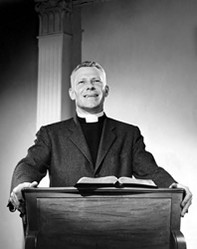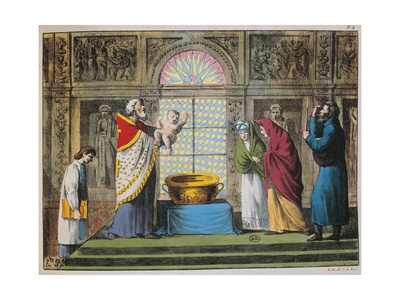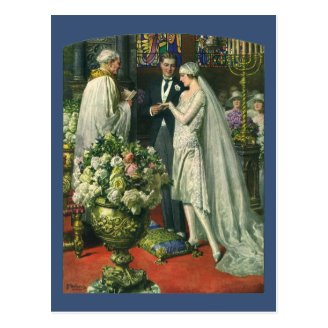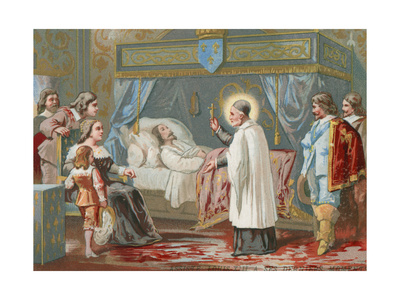They may be called minister, priest, Rabbi, Imam, shaman, or something else but they all represent their faith. It seems that every society has them. But do we really need them today? Do they serve a valuable function, or are they relics of the past, a past where religions have divided people rather than bringing peace and harmony. In fact, would we be better off without them?

What do we need clergy for?
by jptanabe
Every society has had clergy, representatives of their faith who carry out various rituals and teach their religion. Are such people necessary these days?
What do clergy do?
In this article I shall treat clergy as representatives of God/Heaven, which means they can belong to a specific faith or stand as a representative of spirituality in general.
It seems that clergy have two main functions: teaching their faith and presiding over rituals. Of course, they do many more things, but these are the ones that distinguish them from leaders of other community non-profit organizations.
So, do we still need clergy to do these things, or are they pretty much obsolete today?
Teaching their faith
Do we need clergy to teach their faith? Well, laying aside the issue of whether the beliefs of different faiths are valuable in the first place, do we need ordained people to be responsible for teaching them. In this information age it seems we can find the answer to any question on the internet by checking Wikipedia or the numerous websites and blogs that Google is happy to find for us. And if we want to see a demonstration of how to do something, Youtube has videos of pretty much every imaginable (and many unimaginable) activities.
So, do we need ordained clergy to impart their wisdom to us or can we find it out for ourselves? I think this is a good question. And, when we take into consideration that many clergy are unfortunately dogmatic and narrow-minded, and not well-informed about other perspectives, there is an argument to be made for saying that they are not necessary for this.
Do we need clergy to teach their faith?
Or can we learn without them
We need teachers who live the faith to teach it to us
 RuthCox
on 09/05/2014
RuthCox
on 09/05/2014
I do feel that clergymen and women have their place in teaching, guiding us on our chosen faith path. However, I do not believe it is a necessary component to spirituality, more an addition, one to enhance our beliefs.
Performing rituals
Rituals, then, perhaps we need them for those. Here again, let's lay aside the rituals that belong to specific faiths, and not get into the argument of whether the rituals themselves have any value. Let's talk about events where we need someone to perform an official role in conducting a ritual or similar function.
The ones I'm thinking of are those surrounding the significant life events: birth, marriage, and death. I don't know about you, but I wouldn't really be happy with a computer screen image officiating at my marriage! So, yes, I think we need real people for these. Then the question becomes, do they need to be clergy or can we do just fine with other people? Let's look at each of these life events in more detail.
Birth
We all experience birth at the beginning of our lives on earth, even if we don't remember it too well! Now, clergy are not usually present at the actual birth. That's not quite what they're prepared for! However, in most faiths there is some kind of ritual that takes places during infancy.
Most Christian churches carry out baptism of infants when they are old enough to be quite distressed, and often their distress is multiplied to the others involved in the process! Of course, not all infants behave badly at their christening, but many infants have been baptized screaming and kicking, to the obvious chagrin of the parents. I'm sure this baptism ritual has significance, but it is unfortunate that it is often done at an age when the infants don't take too kindly to the procedure. Are clergy allowed to suggest a later age for this ritual? Or one which would involve less ritual and be less distressing?
When I gave birth to my daughter we were in a Catholic hospital. I remember well a priest coming around to visit the new mothers with their babies. He asked me if I would like a blessing on my new daughter. I told him that I wasn't Catholic, but asked if he was willing to give her a blessing anyway. He was a nice man and he said of course, and gave her his blessing. I thanked him, and was happy that my daughter could receive a blessing from God through this priest. It was quite painless, she wasn't disturbed at all, and the whole experience seemed to be only good.
So, do we need clergy to acknowledge our birth? Clearly, we can be welcomed into the community by anyone in an official capacity. Do we need a special prayer, holy water, or other such sanctification of the newborn? That would be the role of the clergy. So I suppose if we believe our children need a representative of God/Heaven to bless our children, we do need clergy to do it.
Marriage
Getting married is certainly a major life event! It's an occasion where two people make a formal, official commitment to each other in front of witnesses. Clearly this type of event needs someone to officiate! And clergy certainly are officiators at many weddings, although others, such as a Justice of the Peace, are also qualified to fulfill at least the legal aspects of this ceremony.
Now the question is, what do clergy add, and do we need it?
Marriage has more than just the legal and public aspect; for many, the spiritual aspect is the most important. Cultures throughout history have included a spiritual component to their wedding ceremonies. There is just something "sacred" about marriage, something that goes beyond the mere legal "piece of paper" commitment. For many, this is why clergy are chosen to be the officiators.
In my experience of having attended weddings, my own and those of others, it is certainly nice to have someone who knows the people getting married perform the ceremony. I know some officiators are quite good at seeming friendly, in a general sort of way. But it would be nice to have this special ceremony conducted by someone who actual knows you! Of course, that doesn't require the person to be a member of the clergy. And, members of the clergy don't always know the people getting married!
Death
Dying
Death, certainly an inevitable experience! The question is, what kinds of ceremony should take place at the time of death?
Often the dying person is involved in a final ceremony. In the Catholic faith a priest may administer the Last Rites to a person close to death. No doubt this provides comfort to those who love them as well as to the dying person, as it prepares them for their final journey and hopefully assures them of a good destination.
In this case, where there is belief in an afterlife, or judgment after death, the role of clergy is clearly important.
After death - the funeral
Naturally, after death the body has to be disposed of and all cultures, regardless of the nature of such disposition, surround the process with a ceremony. One can understand that while the ceremony may benefit the deceased, it certainly is of importance to those who loved them.
When the deceased and/or their loved ones believe in an afterlife, the presence of a member of the clergy is valuable. They are, after all, the closest link to that afterlife. In fact, I can't actually remember having attended a funeral that was not conducted by a member of the clergy.
Here, then, it seems that the clergy do have an important role. In fact, I recall a friend of mine who became a pastor telling me that he seemed to spend most of his time, apart from Sunday services, in conducting funerals!
Do we need clergy to perform rituals?
Do they perform valuable functions in the community or are we better off without them
Clergy provide spiritual support during the most important moments in our lives, we need them!
 RuthCox
on 09/05/2014
RuthCox
on 09/05/2014
Yes, I do believe the rituals of our individual faiths are important and the clergy is needed for this, and is hopefully well-trained and compassionate in these affairs.
Hospital Chaplains
Recently I have encountered several people who have either become or are in the process of becoming hospital chaplains.
Here is an account of "My Journey to Become a Hospital Chaplain" that I found quite enlightening.
The hospital chaplain's job is not an easy one that's for sure, and not one that I would have rated especially highly. However, on reflection, I think a hospital chaplain whose purpose is to create a calming and supportive atmosphere, bringing the spirit of heaven, sounds much more attractive than a harried, overworked government employed social worker who has to deal with bureaucracy and external details. Of course, in my last hospital stay, I was visited by a dog! Two lovely ladies appeared and asked if I would like a visit from their therapy dog, and I was very happy to say yes. In the absence of a dog, I reckon I'd have taken a chaplain though.
Concluding thoughts
In my life I've met quite a lot of members of the clergy, from a great variety of faiths and denominations, and several who call themselves non-denominational or inter-faith. Some of them have been dogmatic and narrow-minded, preaching what they believe, how they believe it, and not interested in making allowances for those who believe differently. Others, who may belong to a particular faith tradition, are amazingly open to people of all faiths.
Generally, just like with other positions and roles in society, I have found that if the person is honestly concerned about the people they are serving they perform their role in a way that adds value to the occasion. I'm not saying others can't perform valuable service at these important life events, but good clergy do a good job. And the spiritual component of life at these special times is significant. There is also something to be said for the continuity of having someone whose presence continues in your life, not just at these significant moments, but is also there for you on a daily, or at least weekly, basis.
So, in my mind, clergy do still have value in today's society. Not when they are dogmatic and judgmental, but when they genuinely seek to serve the community in spiritual matters, taking on the role and responsibility of spiritual representative on important occasions. Even if we didn't have religions any more (which certainly might be a good thing!), I believe we would still need representatives of God/Heaven in our communities, people who dedicate themselves to service in spiritual matters - and they would be the clergy.
You might also like
Who or What Made Them?Questioning the origins of things - debates on who or what created a number o...
Saint Francis - Book review"Saint Francis" by Marie Dennis with illustrations by John August Swanson - e...









 Best "Nutcracker" Movie of all Timeon 03/08/2019
Best "Nutcracker" Movie of all Timeon 03/08/2019
 Lascaux Cave Paintingson 01/18/2018
Lascaux Cave Paintingson 01/18/2018
 Bridges of the Hudson Valleyon 11/20/2017
Bridges of the Hudson Valleyon 11/20/2017
 Great Pyramids of Gizaon 11/14/2017
Great Pyramids of Gizaon 11/14/2017



Anything more to add to the discussion? What do you think?
Good point.
The larger a community becomes, the more it needs organization and functionaries, so religions will need some functionaries to work. These are clergy. Though most individual functions could be performed by non-clerics, the clergy combine them.
I understand. God and church don't always seem to be very connected, unfortunately!
Interesting topic and you presented it in an unbiased way. I am all for spiritual leaders, yet still believe that my faith is between me and the god in which I believe. I have often been admonished for not being a regular church-goer... that too, is between me and mu god.